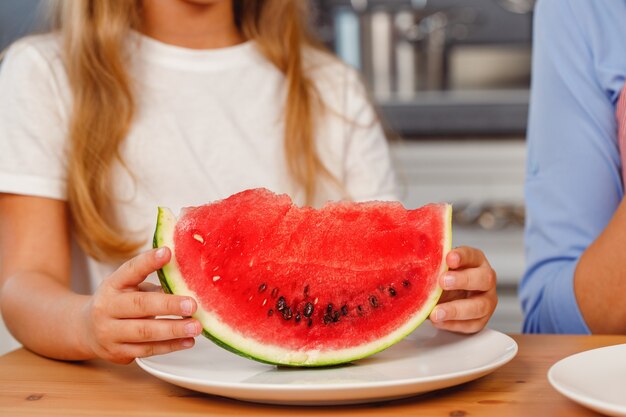Your Guide to Is Watermelon Good For Diabetics
What You Get:
Free Guide
Free, helpful information about Diabetes FAQ and related Is Watermelon Good For Diabetics topics.
Helpful Information
Get clear and easy-to-understand details about Is Watermelon Good For Diabetics topics and resources.
Personalized Offers
Answer a few optional questions to receive offers or information related to Diabetes FAQ. The survey is optional and not required to access your free guide.
Can Watermelon Be a Healthy Choice for Diabetics?
Watermelon, with its refreshing sweetness and hydrating properties, is a go-to fruit for many during the hot summer months. However, for those managing diabetes, the question remains: Is watermelon a suitable choice, or does its sugar content pose a risk? Understanding how watermelon fits into a diabetes-friendly diet can make all the difference in managing your health effectively.
Nutritional Profile of Watermelon
Watermelon is composed of about 92% water, making it an exceptional hydrator. A typical serving of watermelon, about one cup of diced fruit, contains approximately:
- 45 calories
- 11 grams of carbohydrates
- 9 grams of sugar
- A source of vitamins A and C
- Antioxidants such as lycopene
Despite its natural sugars, watermelon is low in calories and has a low glycemic load, which measures a food's actual impact on blood sugar levels. This factor can soft-pedal its glycemic index, which is relatively high.
Benefits for Diabetics
Hydration and Weight Management:
- Watermelon's high water content aids hydration, which is crucial for metabolic function and may support weight control—a key element in diabetes management.
Vitamins and Minerals:
- Vitamins like C and A, along with potassium and magnesium, contribute to overall health and can aid in blood pressure control.
Antioxidants and Heart Health:
- The antioxidant lycopene may improve heart health, offering a protective effect against complications often associated with diabetes.
Dietary Considerations
Balancing watermelon with other foods can help manage diabetes more effectively. Here's how:
- Moderation is Key: Limit watermelon intake to small servings and avoid consuming large amounts that could spike blood sugar levels.
- Pairing with Protein or Fat: Pair watermelon with a handful of nuts or a slice of cheese to slow sugar absorption.
- Monitor Blood Sugar: Track how your blood sugar responds to watermelon and adjust portions accordingly.
Financial Assistance and Educational Opportunities
Managing diabetes can occasionally become a costly affair due to medications, regular testing, and a healthy diet. Exploring financial assistance and educational resources might provide relief:
- Government Aid Programs: Look into options like Medicaid or Medicare for those who qualify, as they often provide support for diabetes management.
- Financial Assistance Programs: Seek local or national programs that offer discounts on diabetic supplies or provide nutritional education at low or no cost.
- Debt Relief Options: If healthcare costs are creating significant financial strain, consider reputable debt relief solutions to ease the burden.
- Educational Grants: For those looking to deepen their understanding of nutrition and diabetes management, scholarships or grants for health-related educational courses can be invaluable.
Watermelon, when consumed mindfully, can indeed fit within a diabetic's diet. By pairing with the right foods and keeping portions in check, it's possible to enjoy its refreshing taste without compromising your health goals. For those balancing financial responsibilities alongside diabetes management, exploring supportive resources could be a game-changer.
Explore These Financial and Educational Resources:
- 💼 Medicare/Medicaid: Assistance programs for qualifying individuals.
- 🏥 Non-Profit Health Organizations: Often provide free or discounted supplies.
- 📚 Educational Scholarships: Grants for courses on nutrition and diabetes care.
- 🏦 Debt Relief Services: Reputable programs to manage healthcare-related debt.
- 🍎 Local Food Banks: Sometimes provide fresh produce options and nutritional advice.
What You Get:
Free Diabetes FAQ Guide
Free, helpful information about Is Watermelon Good For Diabetics and related resources.

Helpful Information
Get clear, easy-to-understand details about Is Watermelon Good For Diabetics topics.

Optional Personalized Offers
Answer a few optional questions to see offers or information related to Diabetes FAQ. Participation is not required to get your free guide.


